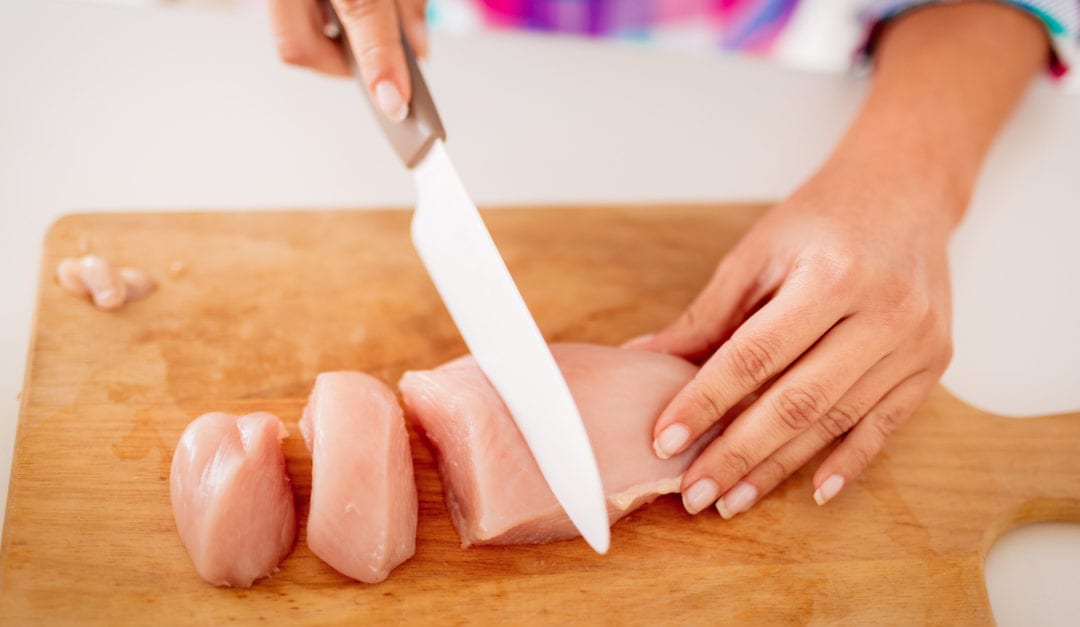We see many people suffer from food poisoning every year. Most of the cases are fairly mild, but the worst of them can be much more serious, or even fatal. The real tragedy is that most of those cases could have been prevented through proper hygiene in the kitchen and better food storage.
What is It Food Poisoning?
Food poisoning is a broad term that refers to any of the illnesses that can come from eating contaminated or spoiled food. Bacteria in the food is a common culprit, but enterotoxins, viruses, parasites, and even the natural qualities of a few foods can all be responsible for the problem.
The symptoms vary between cases, but they generally involve upset stomachs, cramps, diarrhea and vomiting. A variety of other symptoms are also fairly common, including headaches, dehydration and bloody stool. It can take a few hours to a couple of days for the symptoms to manifest. Many people feel confident in a self-diagnosis based on those symptoms, but there is always a risk of making a mistake when doing so. The best way to get a good diagnosis is to consult a medical professional who can analyze the problem and provide advice about how to treat it.
Preventing Problems
Food poisoning comes from contaminated food, so preventing it is a matter of avoiding potentially affected meals. That can be easier said than done, but there are a lot of ways to reduce the risk in your own kitchen. We advise everyone to try their best to stay healthy by taking a few basic precautions.
Stay Clean
The most important and fundamental tip that we offer is to clean the kitchen and everything in it. That includes your hands. Wash them regularly, especially if you have been handling raw meat. Any bacteria that your hands pick up will get spread to whatever you touch!
The Centers for Disease Control and Prevention advises individuals to wash their hands for at least twenty seconds with soap and water before cooking, after cooking, and during cooking if they might have been exposed to germs. It is also a good idea to wash before eating.
We also advise people to wash their utensils and cutting boards both before and after use. Food that is going to be eaten raw should generally be cleaned before eating as well, especially fresh fruits and vegetables.
Avoid Cross-Contamination
Even food that is naturally free from contamination can become a problem if it picks germs up from somewhere else.
Raw meat, poultry, eggs, and seafood are generally the culprits when that happens. Try to keep them separate from other foods at all times. Keep them in a separate bag when you get them at the grocery store, and keep them away from other foods in the fridge. When cooking, keep them on separate dishes and use separate cutting boards until they have been cooked.
Cook Food Thoroughly
We can eliminate most pathogens by cooking our food properly. That means getting it to a temperature that will kill the pathogens and keeping it there for an appropriate amount of time. The temperature and time varies between foods.
Using a food thermometer can help you make sure you’ve cooked your food properly instead of estimating it based on how the food looks. It is hard to guess the temperature accurately, so a thermometer is the only option if you want to be sure that your food is cooked properly.
Keep Food It Cold
High temperatures kill dangerous bacteria, but low temperatures stop any survivors from spreading. Food should be stored in the refrigerator, and it generally needs to get in there within an hour or two of getting cooked to keep it safe. Remember that chilling food slows spoilage, but does not always prevent it, so keep an eye on your leftovers to make sure you throw them out if they go bad.
Thawing food properly is also important if you have been storing it in the freezer. It needs to warm up in the microwave, in cold water, or even in the fridge. Letting it thaw on the counter will make it easier for bacteria to grow while it thaws.
Food poisoning is something everyone tries to avoid – especially during the holidays. With all of the marathon cooking that happens, utilizing the tips we have outlined herein will be sure to keep you and your loved ones safe.

